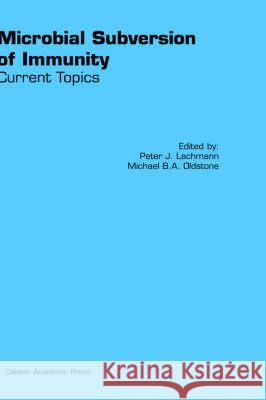Microbial Subversion of Immunity: Current Topics » książka
Microbial Subversion of Immunity: Current Topics
ISBN-13: 9781904455059 / Angielski / Twarda / 2000 / 294 str.
Microbes have evolved in an impressive and diverse range of strategies to subvert the host immune system. Two major types of strategies exist. The first is the evasion of recognition by the host, for example by using antigenic variation, masking of epitopes, the use of decoys, molecular mimicry, etc. The second is the modulation and/or suppression of the innate (e.g. complement, NK cells) and adaptive (e.g. antibodies) immune responses. A better understanding of the underlying mechanisms involved is critical for the rational design of novel therapeutic agents and vaccines to treat and/or prevent infectious diseases. Another area of active research is the application of microbial immunomodulatory factors in the treatment of human immunological disorders (e.g. inflammatory bowel disease and asthma) and as sources of pharmacologically active agents. In this book, internationally renown scientists critically review the current cutting-edge research in this area. Topics covered include the subversion of complement, NK cell function, mucosal innate immune response, evasion/subversion mechanisms used by bacteria, helminths, viruses, and the measles model system. Containing over 1,700 references, this book is an essential resource book for researchers in the fields of microbiology, immunology, pharmacology, and molecular medicine.











